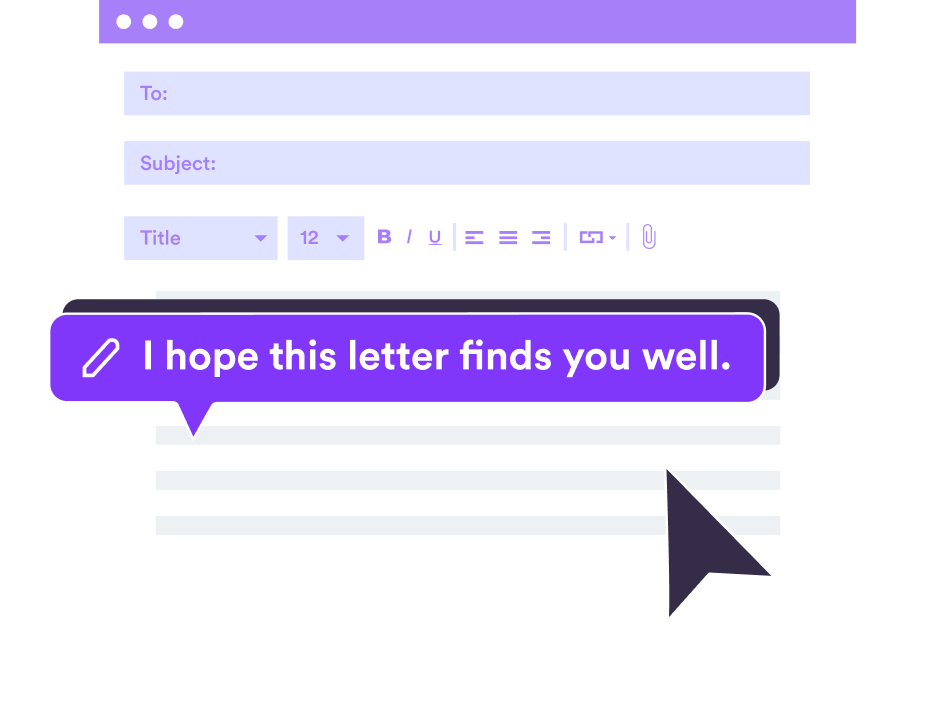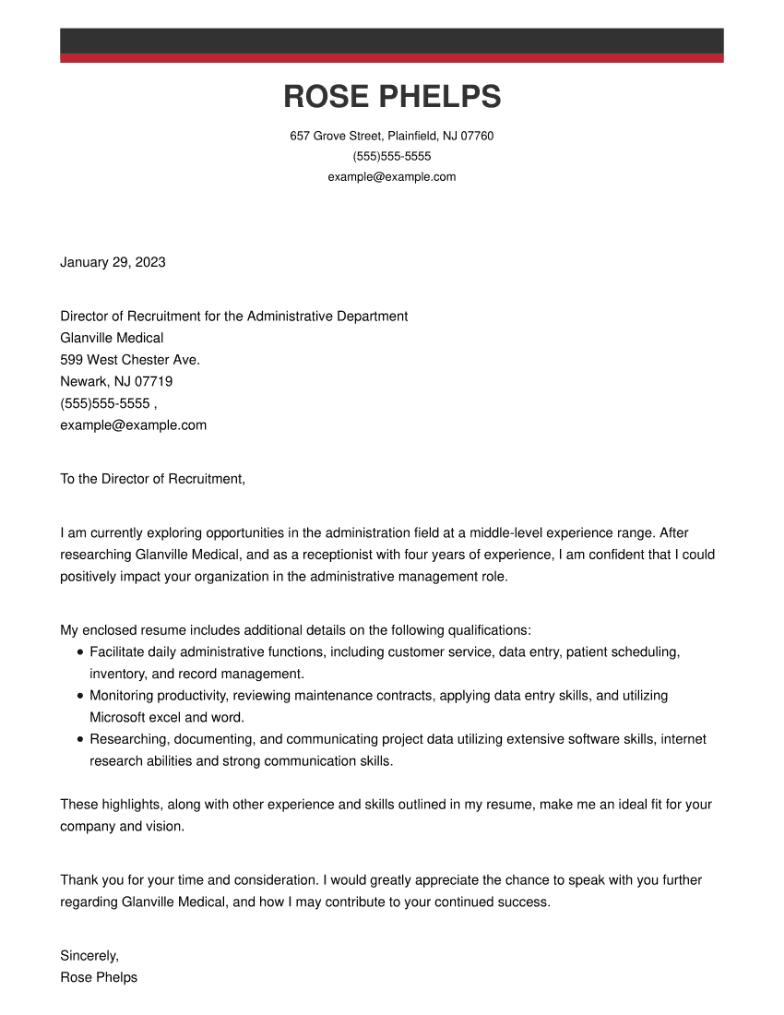Our customers have been hired by*:*Foot Note

Cold Cover Letter Example
Cold Cover Letter
Many job seekers will be familiar with writing cover letters for various job opportunities they come across. However, if you email cover letters out to prospective employers and still haven’t heard back, then it might be time to take a different approach.
The job market focuses a lot on landing a specific job, but what should you do if you want to work for a company that doesn’t have any job openings available? This is where writing a cold cover letter can come in. Let’s take a closer look into how to write an effective cold cover letter with some cold cover letter examples.
Build my cover letterWhat is a Cold Call Cover Letter?
There are plenty of different types of cover letters out there, but most candidates would not think to write a cold cover letter. The letter acts as a formal introduction to the Human Resources department of a company.
Where a cold cover letter (or cold contact cover letter) differs is that it essentially acts as a cold call for your job search. Typically, you would send a cold cover letter to a company that you are interested in working for that does not currently have any job openings available.
Cold Cover Letter Format
All professional cover letters follow a similar format:
Header
The header should include all your current contact information, such as:
- Your full name
- Your address
- Your phone number
- Your email address
- (If applicable) Link to your portfolio, professional website, or LinkedIn profile
Keep in mind that most cold cover letters are emailed directly to the hiring manager. You should also include the hiring manager’s contact information in your letter as well:
- The hiring manager’s name
- The company name and address
- The company’s phone number
- The hiring manager’s email address
Introduction and hook
All good cover letters need to grab the reader’s attention in the first paragraph. Usually, writing a personalized salutation to the recruiter will do the trick. Generic openers such as “To whom it may concern” and “Dear hiring manager” will come across as lazy or uninterested. This can be especially detrimental for cold cover letters since you’re appealing to the hiring manager rather than the other way around.
You should also delve into your main reason for wanting to work for the company as well.
Why you want to work for the company
Because you are not directly responding to an open job ad for the company, you should instead focus on a different angle: why you are interested in working for the company itself. This requires you to do your research into the industry the company is involved in, the company’s values and mission statement, and any other relevant details about the company itself.
You can typically find all this information on the company’s website, but take care not to rehash what’s already written on it. You want to explain why you want to work for this specific company and what you believe you can bring to the table.
Why you’re the perfect fit for the company
Briefly touching on your relevant skills and years of experience in your particular career can further entice a hiring manager to keep you in mind for future job openings. Including a short anecdote about a significant contribution you made can also entice the recruiters to consider you for future roles.
Call to action
The last paragraph should essentially be a summary of what you just wrote. Reminding the hiring manager of your most valuable skill sets and work experience will help the hiring manager remember you and what you’re good at.
You should also end the letter with a request to follow up for an informal interview or to discuss any open positions in the company with the hiring manager. This places the responsibility back on hiring managers to contact you if they are interested in your resume and skill sets.
Build my cover letterFAQs: Cold Cover Letter
Have questions? We’re here to help.
What is the purpose of writing a cover letter?
Cover letters give all job seekers the chance to discuss their work experience and skills outside of a formal interview setting. A good cover letter can help you stand out from other candidates and explain why you are the best fit for any given position.
What are the benefits of sending a cold cover letter?
A cold cover letter can help get your foot in the door of a company. It is possible that the hiring manager has not yet posted an open position that you happen to be qualified for, and they will consider you for the role. This letter can also help you expand your network and possibly lead to an informational interview.
Informational (or informal) interviews are basically casual interviews outside the work setting where you can get to know more about the hiring manager and the company they work for. Oftentimes, you can learn a lot of insider information about the company culture and how employees operate overall before you ever land the job, which can be extremely valuable in your job search.
Where can I find free cold cover letter templates?
If you are still struggling to write a great cover letter, then try using a cover letter builder tool. These tools have plenty of cold cover letter examples, cover letter samples, and other cover letter tips to help you craft the perfect cold cover letter.
Couldn't find the answer you're looking for?







